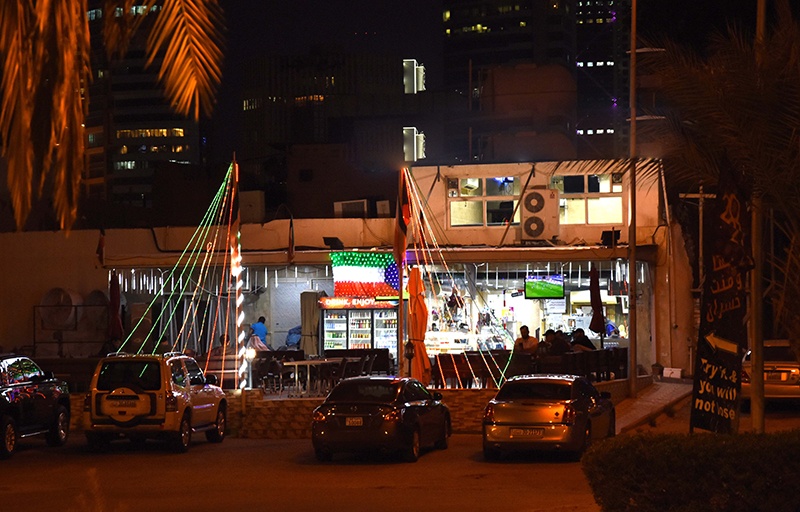 KUWAIT: This archive photo shows people dining outside a restaurant in Kuwait. - Photo by Fouad Al-Shaikh
KUWAIT: This archive photo shows people dining outside a restaurant in Kuwait. - Photo by Fouad Al-Shaikh
By Ben Garcia
KUWAIT: The Cabinet on Monday decided to ban dine-in at restaurants and close all land and sea borders from today as part of additional measures to contain the spread of the coronavirus. For Cristina, a restaurant owner, it's a struggle running her small business.
"Restaurants have not completely recovered from 2020 lockdowns and curfews. We are not fully operational and functional to this day because we are still observing social distancing, so the restaurant is never filled to capacity. Now dine-in has been banned. It will definitely affect our sales," she told Kuwait Times.
At the time of restrictions in 2020, she recalled the drastic impact of the closures on her sales, as only takeout and delivery services were allowed. "It will be same now - because if you are at home, you can cook your own food. Why order from a restaurant? There was a decline of 70 percent in sales at that time, and it could be the same this time," Cristina added.
Small restaurants cannot afford to pay delivery companies. "Delivery services are too expensive for us. You have to sign a contract and pay the amount they need for the delivery service - we cannot afford it. So we ask taxi drivers or any available transport to take the food to our customers. The delivery charge is shouldered by the customer. Who would like to order food worth KD 5 if the delivery charge is also KD 5, if you are in faraway places like Fahaheel or Jahra?" Cristina asked.
Cristina said the cost of delivery is more expensive than going directly to restaurants. "This is the reason why many restaurant owners like dine-in instead of delivery, because sometimes the food is cheaper than the delivery charge," she said, adding that nearby customers have an advantage. "If you live in the vicinity, delivery is free."
Workers' salaries
Kuwait Times asked her if she will pay her workers full salaries. "I don't know - I need to meet our sales target. How will I pay my workers; where will I get money for rent," she asked. "I hope the government, like in Western countries, compensates small business enterprises because they have no other source of income. We don't even know how long we will be closed. I hope after the holidays we can return to normal operations," she said.
The dine-in ban at restaurants and cafes will go into effect today until further notice, the Cabinet said in a statement following a meeting at Seif Palace. However, takeout and delivery services are allowed throughout the day. Jason, a waiter at a restaurant in Salmiya, said he was informed by his boss yesterday to report to duty only for three days a week. "I will not be paid in full. Since there is no dine-in, what will I do there? No tables to clean. So I was told to come only on Thursday, Friday and Saturday. I don't know where to get money to send to my family in the Philippines. I am praying the restrictions will not stay longer than a week," he said.
Leo, another restaurant owner, was dismayed by the dine-in ban. "I just opened the restaurant in November. Now I am closing dine-in - I've hardly got any return on my investment. I am still trying to cope," he said. Leo also has a cargo and electronics business, which he said were not as promising as a restaurant. "I entered the restaurant business because they say it's the only business that can survive a crisis, but I was wrong. I hope restriction won't stay longer than a week," he told Kuwait Times.
The Kuwaiti government on Feb 7 had ordered the closure of commercial shops and malls from 8 pm to 5 am and banned all forms of gatherings, including those for national celebrations on Feb 25 and 26. Kuwait has reported a significant increase in the number of coronavirus cases in the past several weeks and blamed the rise on failure to comply with health measures by the public.
.jpg)



